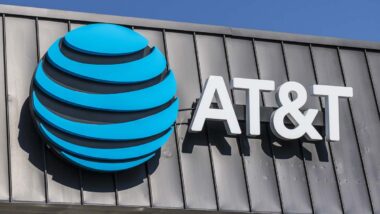Top Class Actions’s website and social media posts use affiliate links. If you make a purchase using such links, we may receive a commission, but it will not result in any additional charges to you. Please review our Affiliate Link Disclosure for more information.

Here’s a List of the Top Data Breach Class Action Lawsuits (and How to Keep Your Data Safe Online)
Every minute, $2,900,000 is lost to cybercrime, and top companies pay $25 per minute due to cyber security breaches, according to RiskIQ, a cyber security company based in San Francisco.
Statistics like these show why Cybersecurity Awareness Month, which takes place this month, is so important.
Several class action lawsuits involving major data breaches highlight the importance of protecting consumer data.
Consumers File More Than 30 Data Breach Class Action Lawsuits Against T-Mobile
T-Mobile is facing multiple class action lawsuits in regards to a massive data breach. In August, T-Mobile reported that hackers breached the company’s systems and stole the personal and private information of more than 50 million customers, including their names, phone numbers, dates of birth and Social Security numbers.
Affected customers included those who paid for service at the end of each month and those who applied for credit with T-Mobile, with 7.8 million of the former group facing the maximum amount of data exposed, according to the company.
However, T-Mobile has asked to pause the complaint until the U.S. Judicial Panel on Multidistrict Litigation decides whether or not to group the more than 30 class action lawsuits together for multidistrict litigation.
Cybercriminals Expose Private Information of Approximately 700 Million LinkedIn Users
In the second data breach to hit the company in a span of months, LinkedIn reported that the private information of approximately 700 million LinkedIn users was exposed.
Cybercriminals claimed to have hacked the career networking website in June and posted 1 million of the records they collected as proof. The leaked records appear to include many LinkedIn users’ names, email addresses, phone numbers, addresses, personal and professional information, gender, social media information and, in some cases, their “inferred” salaries.
This incident occurred on the heels of another data breach that exposed the information of 500 million LinkedIn users. In that instance, LinkedIn reportedly confirmed that the data breach included information from its servers, as well as from other websites.
Blackbaud Faced More Than 30 Plaintiffs in 20 States After 2020 Cyberattack
Blackbaud, an international cloud software company, was hit by ransomware in a 2020 cyberattack that resulted in thieves purportedly removing a copy of a subset of data from Blackbaud’s self-hosted environment.
While not listing exactly what information was accessed, Blackbaud reported that no credit card information, no bank account information and no Social Security numbers were accessed. The ransomware issue allegedly ended when Blackbaud paid the cyber criminals the amount of money they demanded.
Though Blackbaud told customers that no financial information had been compromised, it urged them to be on the lookout for suspicious activity, leading some to believe that the secretive company knew more. In addition, consumers alleged in multiple class action lawsuits that Blackbaud had failed to secure its data from ransomware attacks.
The claims were consolidated in South Carolina federal court and the multidistrict litigation includes more than 30 plaintiffs from 20 states that allege the Blackbaud data breach exposed personal, educational and health information.
500 Million Customers Have Personal Information Stolen in Marriott Data Breach
A 2018 massive Marriott data breach spanning multiple years allegedly jeopardized the personal information of countless hotel customers.
Marriott International said that the personal information of nearly 500 million customers had been stolen. Information affected by the Marriott data breach included names, email addresses, phone numbers, passport numbers, date of birth and arrival information.
The breach started in the reservation system of Starwood hotels in 2014. Investigators traced the breach to the work of Chinese hackers, according to The New York Times.
Equifax Faced Cybersecurity Incident That Reportedly Exposed Personal Data of Around 143 Million Americans
More than 50 lawsuits were filed against Equifax Inc. following a massive cybersecurity incident that reportedly exposed sensitive personal data of around 143 million Americans.
According to Equifax, personal identifying information such as names, birth dates, Social Security numbers, driver’s license numbers, address history and other sensitive financial data had been accessed by unauthorized parties between May and June 2017.
Equifax is one of the major credit reporting agencies in the United States. It obtains consumer data by purchasing public data and obtaining it from companies such as banks and credit card companies that report consumers’ activity to Equifax.
Multiple DMV Breaches Expose Driver Data
In February, an estimated 38 million records may have been compromised in a cyberattack affecting the California DMV.
And in May, Applus, the company that provides vehicle inspections and emission testing for the Connecticut DMV was subject to a data breach of drivers’ private information.
Finally, the entire Texas Department of Motor Vehicles’ database was exposed in a 2020 Vertafore data breach compromising the sensitive information of 27.7 million Texans, including their names, addresses, birthdates and Social Security numbers.
6 Steps for Protecting Your Data Online
Stop.Think.Connect., a national public awareness campaign aimed at empowering the American public to be safer and more secure online, provides several tips for staying safe online.
1. Enable stronger authentication
Always enable stronger authentication for an extra layer of security beyond the password that is available on most major email, social media and financial accounts. Stronger authentication (e.g., multi-factor authentication that can use a one-time code texted to a mobile device) helps verify that a user has authorized access to an online account.
2. Make your passwords long and strong
Use complex passwords with a combination of numbers, symbols and letters. Use unique passwords for different accounts. Change your passwords regularly, especially if you believe they have been compromised.
3. Keep a clean machine
Update the security software, operating system and web browser on all of your Internet-connected devices. Keeping your security software up to date will prevent attackers from taking advantage of known vulnerabilities.
4. When in doubt, throw it out
Links in email and online posts are often the way cyber criminals compromise your computer. If it looks suspicious (even if you know the source), delete it.
5. Share with care
Limit the amount of personal information you share online and use
privacy settings to avoid sharing information widely. Limit what information you post on social media—from personal addresses to where you like to grab coffee. What many people don’t realize is that these seemingly random details are all that criminals need to know to target you, your loved ones and your physical belongings—online and in the real world. Keep Social Security numbers, account numbers and passwords private, as well as specific information about yourself, such as your full name, address, birthday and even vacation plans. Remember, there is no “delete” button on the Internet. Share with care because even if you delete a post or picture from your profile seconds after posting it, chances are someone still saw it.
6. Update your privacy settings
Set the privacy and security settings to your comfort level for information sharing. Disable geotagging, which allows anyone to see where you are—and where you aren’t—at any given time.
Have you been involved in a recent cyber attack or data breach? Check Top Class Actions regularly for the latest data breach settlements and to see if you qualify!
Don’t Miss Out!
Check out our list of Class Action Lawsuits and Class Action Settlements you may qualify to join!
Read About More Class Action Lawsuits & Class Action Settlements:
- 4.6M Neiman Marcus Online Accounts Exposed in Recently Disclosed 2020 Data Breach
- Plaintiff Voluntarily Dismisses Claim Against St. Joseph’s/Candler Over Alleged Data Breach
- Judicial Panel Denies Geico Multidistrict Merger for Data Breach Class Actions
- Metromile’s Negligence Led to Drivers’ Personal Info Being Stolen in Data Breach, Class Action Alleges















7 thoughts onProtect Yourself: October is Cybersecurity Month
Please add me, Am T-Mobile Customer!!!!!
Please add me
Wow add me
Add me plz
Add me had T-Mobile
Add me
Add me